- Home
- Parnell Hall
SW02 - The Anonymous Client Page 17
SW02 - The Anonymous Client Read online
Page 17
“Miss Millburn,” Fitzpatrick said, “you say you heard the sounds of an altercation coming from the victim’s apartment?”
“That’s right.”
“What kind of altercation?”
“What do you mean?”
“You tell me. What did you hear?”
“The sound of things being knocked over. Furniture being smashed.”
‘Did you hear voices?”
“Voices?”
“Yes. Did you hear voices? Was it also a verbal altercation? Did you hear the sounds of an argument?”
“Yes, I did.”
“Really? You didn’t mention that on direct examination.”
“I wasn’t asked.”
“No, you weren’t, Miss Millburn. Now why do you suppose that was?”
“Objection, Your Honor.”
“Sustained.”
“Did you know you weren’t going to be asked about voices on direct examination?”
“Objection.”
“Sustained as to form.”
“Miss Millburn, when you gave your testimony, was there any intention in your own mind not to mention the fact that you heard voices?”
“Objection, Your Honor.”
“Overruled. Witness will answer the question.”
“Yes, there was.”
“And why was that?”
“Because I couldn’t hear the voices clearly enough to identify them, and Mr. Dirkson told me—”
“Objection, Your Honor!”
“No, no,” Fitzpatrick said, grinning broadly. “Tell us. What did District Attorney Dirkson tell you?”
Judge Graves banged the gavel. “That will do,” he snapped. “Mr. Fitzpatrick, it is not your place to rule on objections, it is mine. Is that clear?”
“Yes, Your Honor.”
“In this case, the objection is overruled. The witness is explaining why she refrained from mentioning certain things in her testimony. It is entirely relevant. The witness will answer the question.”
“You didn’t mention voices because of something District Attorney Dirkson told you?”
“That’s right. He said that since I couldn’t recognize the voices, there was no reason I should mention them unless specifically asked.”
“I see,” Fitzpatrick said, grinning. “Now then, you are being specifically asked. The fact is, you heard voices?”
“That’s right.”
“You say you couldn’t recognize them?”
“No.”
“Are you familiar with the voice of the decedent, Donald Blake?”
“Not really.”
“You were next door neighbors. You had never been to his apartment?”
“No.”
“Surely you must have bumped into him in the hall.”
“He’d only lived there a couple of months. I’d bumped into him a few times.”
“Just to say hello in passing?”
“That’s right.”
“Then you had heard his voice?”
“Yes. I had.”
“Was one of the voices you heard arguing that of Donald Blake?”
“I tell you, I couldn’t hear the voices well enough to identify them.”
“But one of them might have been Donald Blake?”
“Objection.”
“Sustained.”
“Miss Millburn, although you couldn’t identify the voices, could you hear clearly enough to tell that there were two?”
“No, I could not.”
Fitzpatrick raised his eyebrows. “You’re stating that there were not two voices?”
“No, I’m not. There might have been two. I’m merely saying I couldn’t identify them.”
Fitzpatrick stopped, frowned. “Miss Millburn, have the police or the prosecution at any time asked you to listen to the voice of the defendant, Marilyn Harding?”
“No, they have not.”
“They have not?”
“No.”
Fitzpatrick frowned again. He stopped, thought for a moment. Suddenly he smiled. He turned back to the witness.
“Miss Millburn, you claim you couldn’t distinguish between the voices.”
“That’s right.”
“Miss Millburn, just for the sake of argument, assuming that there were two voices—you will concede it takes two to make an argument—and assuming that one of the voices was that of Donald Blake, let us consider the other voice you heard. You say that you couldn’t distinguish between the voices. I ask you, considering all that, is it possible that the second voice you heard was that of a woman?”
The witness shifted on the stand, and Fitzpatrick knew he’d scored.
She batted her eyes. “No,” she said.
“No?” Fitzpatrick said.
“No,” she said. “It was a man.”
Fitzpatrick turned from the witness stand with a broad grin. But his eyes were hard. And they moved to the back of the courtroom, where they sought, caught and held those of Steve Winslow.
30.
STEVE WINSLOW LEANED BACK IN Mark Taylor’s overstuffed clients’ chair and rubbed his head.
“So,” he said, “what’s his game?”
Mark Taylor looked at him. “Fitzpatrick? I thought that was fairly obvious.”
Steve shook his head. “Naw. Screw Fitzpatrick. I mean Dirkson.”
Mark Taylor frowned. “I don’t get it, Steve.”
“I don’t get it either,” Steve said, “and it bothers me.”
Mark Taylor took a sip of coffee. “Look, Steve. We’re not connecting here. I don’t know what you’re thinking, and I don’t know what you’re talking about. If you expect me to contribute to this conversation, you better let me in on what you’re trying to say.”
“All right,” Steve said. “Look. To start off with, Dirkson’s not dumb.”
“All right. Dirkson’s not dumb. So? You told me that yesterday. He’s gonna let Fitzpatrick bring out all the shit and then let the bar association go after you. I know that.”
“Right. But besides that. Look what he’s doing.”
“What?”
“All right. Take the witness. Margaret Millburn. He gives her as perfunctory a direct examination as you ever heard. A child of three can see she’s not telling the whole story. Naturally, Fitzpatrick rips into her on cross-examination and brings out the fact that the person she heard arguing with the victim was a man.”
“So?”
“I was watching Dirkson when it happened. He didn’t bat an eye.”
“What’s wrong with that?”
“Everything.”
Steve Winslow got up and started pacing.
“I don’t understand, Steve,” Taylor said. “We know Dirkson’s out to get you. This is exactly what he’s been doing all along—letting Fitzpatrick bring out the damaging stuff. So what’s the big deal?”
Steve shook his head. “Dirkson wants to get me for obstructing justice and tampering with evidence. He isn’t out to get me for murder. Look, Mark. Dirkson’s trying Marilyn Harding on a murder rap. Much as he might love to take a few pot shots at me, his prime concern is convicting her. Margaret Millburn’s testimony that the person she heard having an altercation with the decedent was a man has to be a serious blow to Dirkson’s case. But it doesn’t seem to faze him. And the question is why?”
“And the answer is, I don’t know.”
“Right. And that’s what bothers me. Sooner or later, Dirkson’s gonna rest his case. As soon as he does, Fitzpatrick’s gonna slap a subpoena on me. He’ll put me on the stand, get me declared a hostile witness, and rip into me. I’ll have to take the position that I can’t answer certain questions without betraying the confidence of a client. You know how that’s gonna look to the jury. Ten to one, Fitzpatrick will rest his case right there. Then he’ll argue that the prosecution’s case is all circumstantial, and that I am just as likely to have killed the victim as his client. Add to that the fact that Margaret Millburn claims she heard Bradshaw arguing wit
h a man, and there’s no way the jury’s going to being back a verdict of guilty.”
Taylor frowned. “That’s right. So what the hell is Dirkson up to?”
Steve shook his head. “That’s the question.”
31.
WHEN COURT RECONVENED THE NEXT morning, District Attorney Harry Dirkson stood up and said, “Call Douglas Kemper.”
That announcement drew no reaction from the spectators in the courtroom. Most of them didn’t know who Douglas Kemper was. But it certainly produced a reaction in Marilyn Harding. She came half out of her chair, twisted around, and looked toward the back of the room. Fitzpatrick was immediately on his feet, interposing his bulk between his client and the spectators in the courtroom, but not before Steve Winslow caught the look on her face.
Steve Winslow turned to Tracy Garvin. “This is it. Dirkson’s about to drop a bombshell.”
“Like what?”
“I don’t know. Probably an admission or confession of some sort. She must have told Kemper something damaging. Dirkson’s gonna bring it out.”
“Can he do that?”
“I don’t know. Kemper can lie, evade, even take the Fifth Amendment. He may simply take the position he knows nothing at all. Then Dirkson will have to try to impeach him.”
“Can he impeach his own witness?”
“On a material point, yes. Not on character. Even then he has to show surprise.”
“What do you mean?”
“That he expected one answer and the witness gave him another. It rarely happens. Here we go.”
Kemper took his place on the witness stand.
“Mr. Kemper,” Dirkson said. “Are you related to the defendant in this action?”
“That’s right. I’m married to her stepsister.”
“You’ve known the defendant for some time?”
“Yes. Six or seven years.”
“And you talk to her from time to time?”
“Naturally.”
“Have you and the defendant ever had occasion to discuss the decedent, Donald Blake?”
Fitzpatrick was quick, but not that quick. There was a plainly audible gasp from Marilyn Harding before he roared, “Objection, Your Honor!”
“Overruled,” Judge Graves said. “The prosecution is asking for an admission against interest. Witness will answer the question.”
“I’ll repeat the question, Mr. Kemper,” Dirkson said. “Have you and the defendant ever had occasion to discuss the deceased, Donald Blake?”
Kemper shifted position on the witness stand. “No, we have not,” he said.
“You have not?”
“No.”
“You claim that in all the conversations you have had with the defendant, she never once mentioned to you the man Donald Blake, otherwise known as David C. Bradshaw?”
“Objected to as argumentative and already asked and answered.”
“Sustained.”
“Well now,” Dirkson said. “Let me ask you this: have you ever had any dealings with the decedent, Donald Blake?”
“No, sir, I have not.”
“Never met the man?”
“No, I did not.”
“Never been to his apartment?”
“That’s right.”
“Then if a witness should state that they had seen you in his apartment, that witness would be mistaken, is that right?”
“Objection. Argumentative.”
“Sustained.”
“Mr. Kemper, have you ever paid any money to Donald Blake?”
“No, sir, I have not.”
“Mr. Kemper, an examination of your bank account reveals that on the morning of the seventh of October, you withdrew the sum of twelve thousand dollars in small bills. Did you by any chance give any of that money to Donald Blake?”
The courtroom was abuzz with excitement. The witness blinked twice. “No, sir, I did not.”
“No? But it is a fact that you withdrew twelve thousand dollars on the morning of the seventh?”
“Objection, Your Honor,” Fitzpatrick said. “What this witness may or may not have done is not binding on my client.”
“Sustained.”
“Mr. Kemper, is it not true that the decedent was blackmailing you as well as the defendant?”
“No, it is not.”
“It is not? Mr. Kemper, you claim that you and the defendant never discussed the decedent, Donald Blake?”
“Objected to as already asked and answered.”
“Sustained.”
“Directing your attention to the afternoon of the second of October, did you and the defendant not discuss the decedent, Donald Blake, at that time?”
“No, we did not.”
“Perhaps I can refresh your memory,” Dirkson said, boring in. He raised his voice. “I am referring to the time when you and the defendant checked into the Sand and Surf Motor Inn in Queens, registering as Mr. and Mrs. Sampson. Did you discuss Donald Blake at that time?”
The effect of the question was electric. The courtroom was in an uproar. Fitzpatrick was on his feet, shouting objections, but he could barely be heard above the din.
What created the furor was not so much the question, but the witness’s reaction to it. Douglas Kemper looked as if he’d just been shot through the heart.
It was several minutes before Judge Graves managed to restore order. Fitzpatrick, under pressure, seemed capable of finding grounds for objection unheard of before in any court of law. Judge Graves listened to them all, then said calmly, “Objection overruled. It is an impeaching question, directed to a material point of the testimony of the witness. I direct the witness to answer.”
Dirkson smiled. “Can you answer that question, Mr. Kemper?”
Douglas Kemper was still visibly shaken. He opened his mouth, closed it, then said, “Could I have a glass of water please?’
“Certainly,” Dirkson said. He made a show of being solicitous. He went to the judge’s bench and personally poured the water, then handed the glass to the witness. “Here you are. Take all the time you want. Just drink your water, and when you’re through, please answer my question.”
Kemper gulped the water and took a breath. Some of the color returned to his cheeks. “The answer is, no, I did not.”
“You did not discuss the decedent Donald Blake with Marilyn Harding? But you and Marilyn Harding did register at the Sand and Surf Motor Inn as Mr. and Mrs. Sampson?”
“Objection,” Fitzpatrick said. “Incompetent, irrelevant, and immaterial.”
“Sustained.”
“But is it not true,” Dirkson persisted, “that you and the defendant were having an affair; that Donald Blake learned of this affair and demanded money for his silence; that Marilyn Harding paid him ten thousand dollars and you paid him an additional twelve?”
“No, it is not.”
“And is it not true that after that Donald Blake demanded even more money? Money that you refused to pay? Is it not true that you argued with Donald Blake about that? In fact you argued on the very afternoon that he was killed?”
“No, I did not.”
“And didn’t that argument take place in Donald Blake’s apartment? And wasn’t the time of that argument at five-thirty in the afternoon of the ninth of October? And wasn’t it your voice the witness Margaret Millburn heard when she called and reported an altercation to the police?”
“No.”
“It was not?”
“No.”
“And you’ve never been in Donald Blake’s apartment?”
“No, sir.”
Dirkson picked up the glass from the witness stand. “Then sir, if I were to take this glass that you have been drinking from, and give it to Mr. Riker of the police crime lab, and ask him to compare the prints found on it with the unidentified prints found in the apartment of Donald Blake, are you telling me that there is no chance whatsoever that one of those prints might happen to be yours?”
Douglas Kemper opened his mouth. Closed it again. He blink
ed twice. He looked around the courtroom, as if looking for a way out. His right hand reached up inside his jacket.
There was a moment’s stunned anticipation. Dirkson took a step backward. The bailiff stiffened and reached for his gun.
But it was not a gun Douglas Kemper pulled from his inside jacket pocket.
It was the torn half of a dollar bill.
32.
DOUGLAS KEMPER LOOKED AT STEVE Winslow with pleading eyes. “You have to understand,” he said.
“Oh, do I?”
They were talking through the wire mesh screen in the police lockup. It was approximately two hours since Kemper produced the half of a dollar bill in court. In those two hours a lot had happened. Steve Winslow had come forward and announced that he was Kemper’s attorney. Judge Graves then dismissed the jury and refereed a long, brawling argument among Winslow, Dirkson, and Fitzpatrick. In the end, Graves adjourned court for the day and remanded Douglas Kemper to custody.
So now, at long last, Steve Winslow was face to face with his elusive client.
He wished he wasn’t.
“You have to see it from my point of view,” Kemper said.
“I can barely see it from mine,” Steve said. “You wanna talk, talk, but you better start now, ’cause my patience is wearing thin.”
“I know, I know,” Kemper said. “Well, look, this thing with Marilyn. It wasn’t my fault. Or hers, either. We never planned anything. It just happened.”
“It always does.”
Kemper’s eyes flashed. “No, it doesn’t. You’re trying to make this sound like something cheap. It wasn’t. This is different. This is special. This is—”
“Bullshit. You can save that for someone who wants to hear it. I don’t give a fuck if you were Romeo and Juliet. The fact is, you woke up and realized you married the wrong stepsister. Big mistake. You could have had the younger, prettier one with all the money.”
Kemper came out of his chair. “You son of a bitch!”
“Right,” Steve said. “I’m very brave with the wire mesh screen between us. That’s your next line, Kemper. Go on. Say it.”
Douglas Kemper glared at him in helpless frustration.
“All right, look, clown,” Steve said. “You happen to be in one hell of a mess. Believe it not, it happens to be entirely of your own making. You want to try to get out of it, fine. You want to sit around trying to justify yourself, protesting to high heaven how wronged you’ve been, I can always come back later. I happen to be in no mood for that shit. So you calm down, get control, and then when you’re good and ready, tell me what the fuck happened.”

 Clicker Training
Clicker Training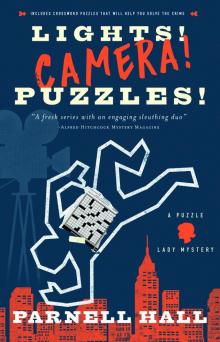 Lights! Camera! Puzzles!
Lights! Camera! Puzzles!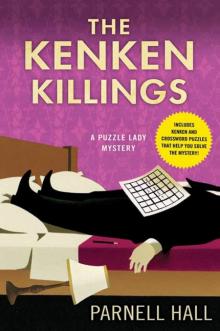 The KenKen Killings
The KenKen Killings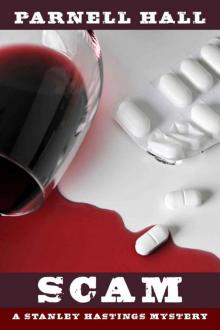 12-Scam
12-Scam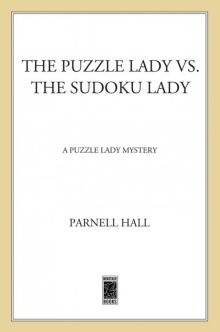 The Puzzle Lady vs. the Sudoku Lady
The Puzzle Lady vs. the Sudoku Lady 2 Murder
2 Murder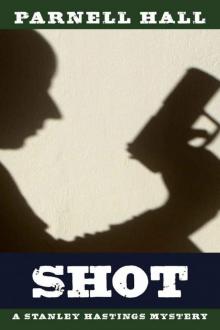 7 Shot
7 Shot You Have the Right to Remain Puzzled
You Have the Right to Remain Puzzled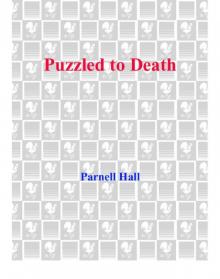 Puzzled to Death
Puzzled to Death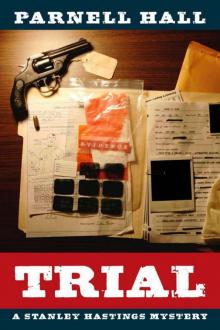 11-Trial
11-Trial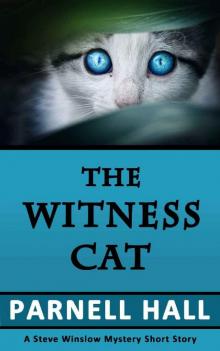 The Witness Cat (Steve Winslow Mystery)
The Witness Cat (Steve Winslow Mystery) With This Puzzle, I Thee Kill
With This Puzzle, I Thee Kill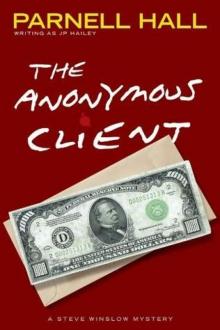 The Anonymous Client sw-2
The Anonymous Client sw-2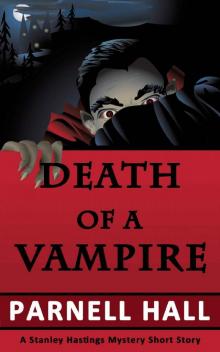 Death of a Vampire (Stanley Hastings Mystery, A Short Story)
Death of a Vampire (Stanley Hastings Mystery, A Short Story)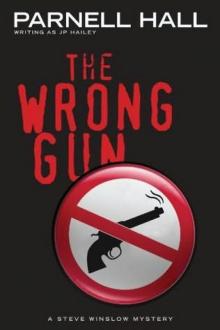 The Wrong Gun sw-5
The Wrong Gun sw-5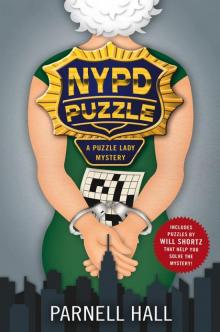 NYPD Puzzle
NYPD Puzzle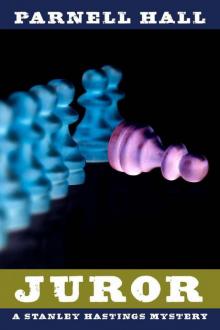 6 Juror
6 Juror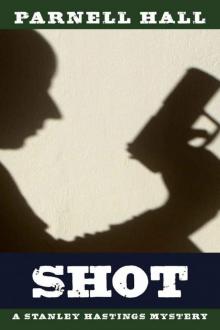 07-Shot
07-Shot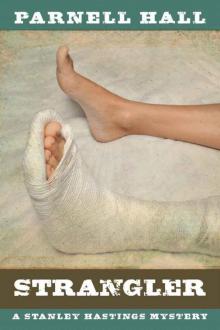 04-Strangler
04-Strangler 02-Murder
02-Murder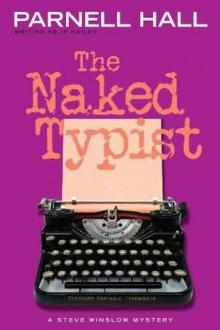 SW04 - The Naked Typist
SW04 - The Naked Typist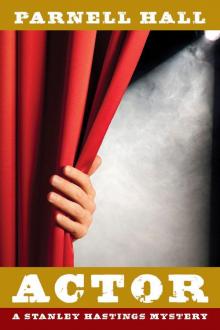 Actor
Actor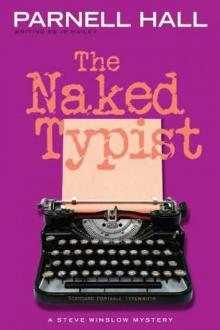 The Naked Typist sw-4
The Naked Typist sw-4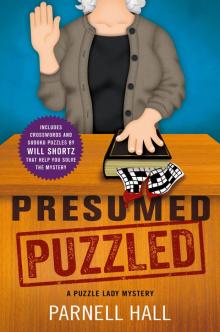 Presumed Puzzled
Presumed Puzzled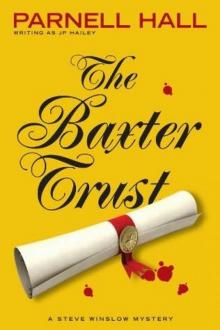 SW01 - The Baxter Trust
SW01 - The Baxter Trust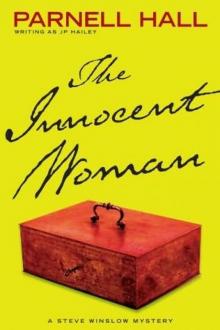 SW06 - The Innocent Woman
SW06 - The Innocent Woman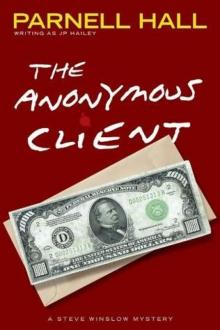 SW02 - The Anonymous Client
SW02 - The Anonymous Client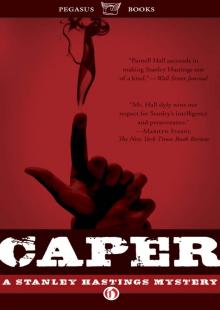 Caper
Caper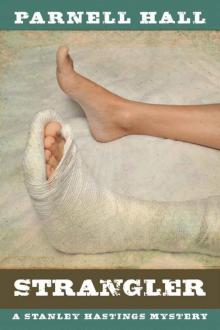 4 Strangler
4 Strangler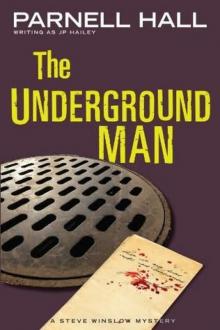 The Underground Man sw-3
The Underground Man sw-3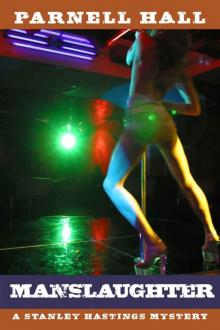 Manslaughter (Stanley Hastings Mystery, #15)
Manslaughter (Stanley Hastings Mystery, #15)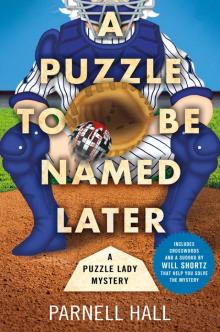 A Puzzle to Be Named Later--A Puzzle Lady Mystery
A Puzzle to Be Named Later--A Puzzle Lady Mystery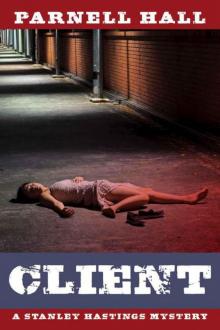 05-Client
05-Client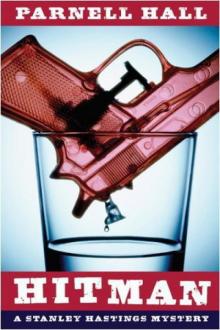 16 Hitman
16 Hitman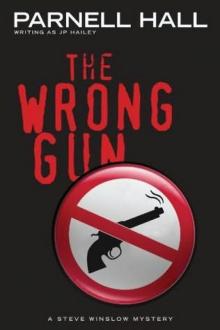 SW05 - The Wrong Gun
SW05 - The Wrong Gun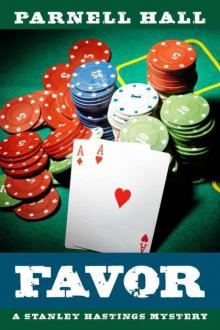 3 Favor
3 Favor Last Puzzle & Testament
Last Puzzle & Testament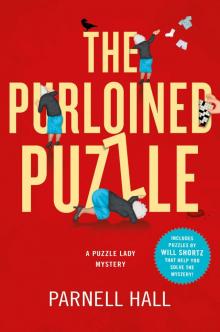 The Purloined Puzzle
The Purloined Puzzle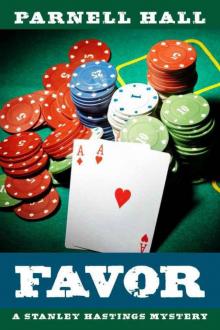 03-Favor
03-Favor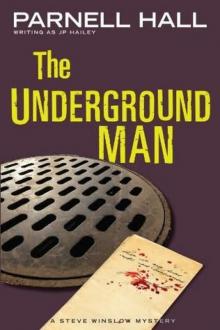 SW03 -The Underground Man
SW03 -The Underground Man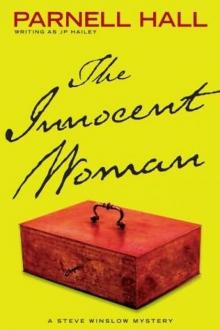 The Innocent Woman sw-6
The Innocent Woman sw-6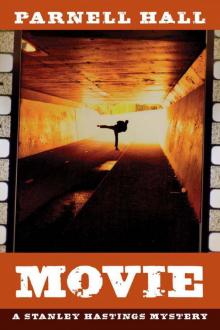 10 Movie
10 Movie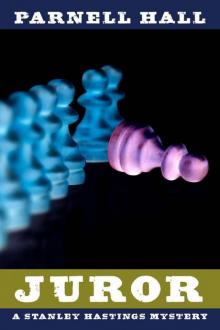 06-Juror
06-Juror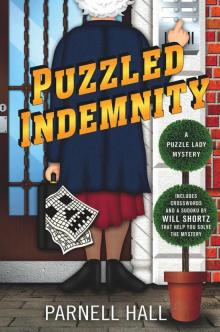 Puzzled Indemnity
Puzzled Indemnity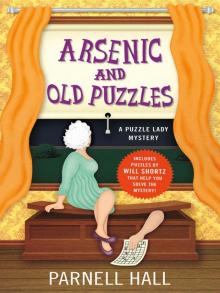 Arsenic and Old Puzzles
Arsenic and Old Puzzles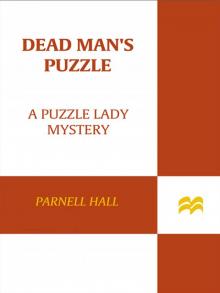 Dead Man's Puzzle
Dead Man's Puzzle Safari
Safari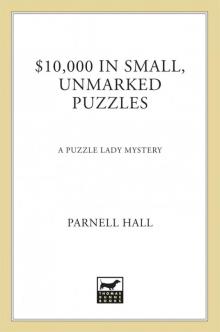 $10,000 in Small, Unmarked Puzzles
$10,000 in Small, Unmarked Puzzles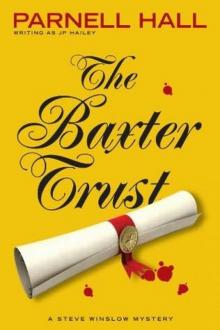 The Baxter Trust sw-1
The Baxter Trust sw-1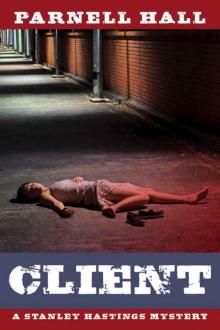 5 Client
5 Client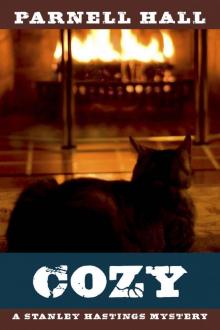 Cozy (Stanley Hastings Mystery, #14)
Cozy (Stanley Hastings Mystery, #14)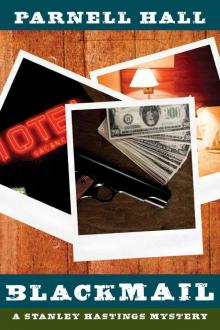 Blackmail
Blackmail A Puzzle in a Pear Tree
A Puzzle in a Pear Tree A Clue for the Puzzle Lady
A Clue for the Puzzle Lady Clicker Training (Stanley Hastings Mystery, A Short Story)
Clicker Training (Stanley Hastings Mystery, A Short Story)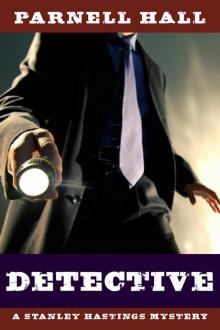 Detective (Stanley Hastings Mystery Book 1)
Detective (Stanley Hastings Mystery Book 1)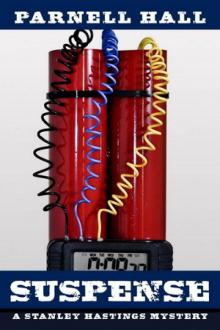 13 Suspense
13 Suspense